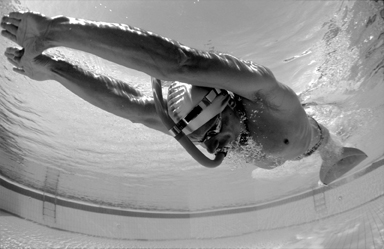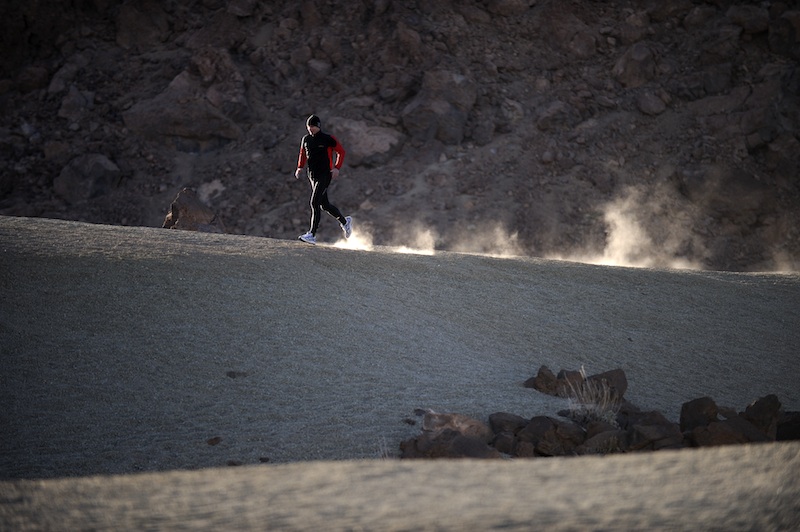Articles
Sports & Breathing
The Breath of Sports
There is something very special about sports. And there is something very special about elite athletes. Common to all talented athletes is that they try to live by the Olympic motto of Pierre de Coubertin introduced at the Olympic Games in Paris in 1924.
“Citius, Altius, Fortius.”
THE OLYMPIC MOTTO

What makes sport so fascinating is that the athletes who master their craft can develop almost supernatural abilities. Furthermore, the sublime performance often seems completely effortless. When a top athlete almost dissolves the laws of nature and does something superhuman, it can have a touch of divine. Anyone who has seen a basketball star defy gravity and hang suspended six feet over the court, or a super swimmer that defies the resistance of water, and moves through it as if it were air, knows exactly what we mean. Sport is also great because it can unite people across generations, cultures and religions, and it is strong because it can awaken deep emotions within us when we see another person uniting body and mind in the soul. In Ancient Greece sport was so respected and powerful that it actually ended or delayed wars, when the Olympic Games were held at the Olympia. The talented athletes were almost regarded as demigods, and this tradition has to some extent survived until today.
Pay attention to how you breathe!
The breath is an integrated part of any type of sport and it adjusts according to the needs of the body. Naturally, the degree to which the breath is used varies and the span between a marathon runner and an archer is enormous. Scientifically and intuitively the breath is undoubtedly significant in reaching sports goals. Efficient breathing oxygenates all muscles of the body to make them work optimally and at the same time removes the carbon dioxide produced by every cell, in vast amounts, during activity. It is surprising how little attention the breath and all its facets are given in sports training, teaching and education. This may be because our Western culture has no tradition of considering something as diffuse and “airy” as the breath.

Muscles, however, are easy to relate to and athletes spend plenty of resources on improving and strengthening these. Even though muscles are the body’s “engine”, there are some limitations to training the muscles. For example, muscles are very heavy and a weight gain is not desirable to a rower, a horseman or a long distance runner. In addition, larger muscles enhance oxygen and sugar consumption which would be catastrophic to a freediver or long distance swimmer. An elite athlete, whose muscles are trimmed and trained to his or her particular sport, is not able to improve performance by brute strength. A simple yet overlooked solution is to reduce the mass of muscle slightly, but at the same time increase the supply of oxygen to each cell, so that the overall capacity is not reduced. It is only body weight and the gross energy consumption that is reduced. Even the composition of our blood can be influenced by how we train, breath and eat. This is a fascination topic that deserved much more attention!
Improve your breathing – improve results
By working with the breath it is possible to improve performance, and this is exactly why there is a lot to be gained from training the lungs, especially if we consider them as the “filter” and “tank” of the body. If at the same time you enhance the quality of the air that reaches the lungs (higher “octane”), the body will be able to increase performance in the short as well as the long term, becoming more explosive and capable of sustained effort. A conscious and well-adjusted breath also provides the means to complete mental control which every athlete desires – particularly in stressed situations.

There is no doubt that in most sports changing one’s mental aspects can quickly improve an athlete. Sports psychology is thus extremely interesting to work with. But before you shape the mental layers of an athlete, it is essential that the “engine” is well-lubricated and equipped with the most horsepowers possible. All in all, there are many freediving and yoga training techniques and methods that can be very useful in other sports. This applies not only to those who practice sport at an elite level, but certainly also everyday athletes and other people who do sport as a hobby.
If you liked this article you are most welcome to share it with your friends…
Breatheology Courses
Learn and master conscious breathing through our online learning programs. Discover how effective, simple techniques can help boost your performance, help you feel more balanced, and improve your well-being.
Free Courses
Kickstart your breathwork journey with our free, step-by-step training programs.
Level Up Your Skills
Take your breathwork to new heights with our advanced courses and feel the difference in your mind and body.
